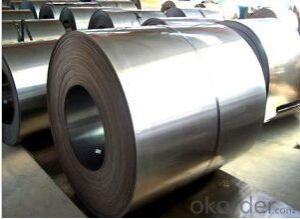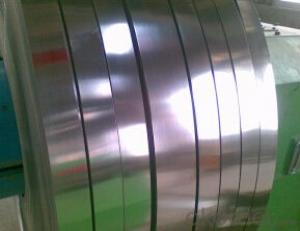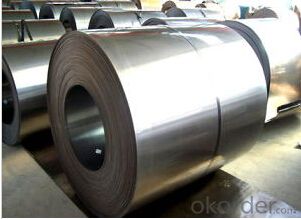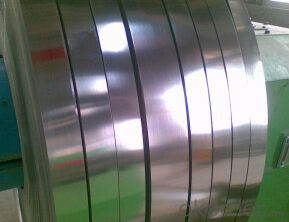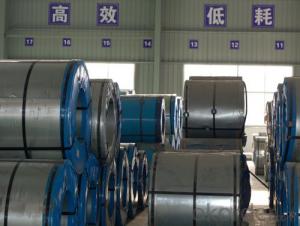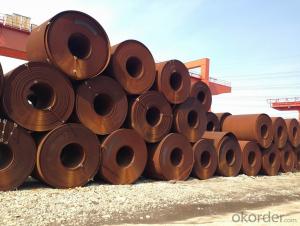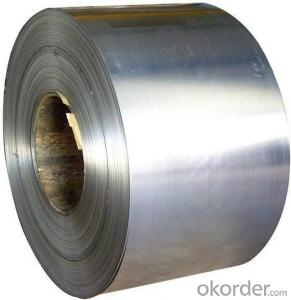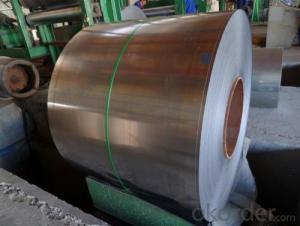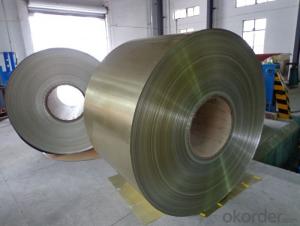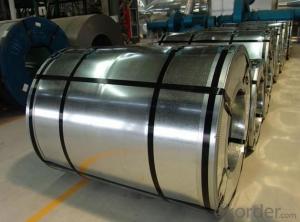Alloy Rolled Steel Coil for Machinery Parts
- Loading Port:
- Tianjin
- Payment Terms:
- TT OR LC
- Min Order Qty:
- 25 m.t.
- Supply Capability:
- 10000 m.t./month
OKorder Service Pledge
OKorder Financial Service
You Might Also Like
Description Info.
Model NO.:15CrMo/20CrMo/30CrMo/40CrMo/50CrV4/60Si2Mn/65Mn
Type:All Above
Standard:AISI, ASTM, DIN, JIS, GB, BS
Technique:All Above
Surface Treatment:Polished
Composition:All Above
Steel Grade:Grade a
Special Use:All Above
Shape:Coil Plate Strips etc.
Application:All Above
Size:0.18mm-5.0mm
Export Markets:Global
Additional Info.
Trademark:Shanghai Yunhan Steel
Packing:Standard Export Packing
Standard:SGS
Origin:China
HS Code:72253000
Production Capacity:10000 Meter/Meters Per Month
Standard:AISI,ASTM,BS,DIN,GB,JIS
Thickness:0.18-5.0mm
Place of Origin:China (Mainland)
Type:Steel Coil
Technique:Cold Rolled/Hot Rolled
Surface Treatment:Polish
Width:20-1800mm
Length:coil/Plate
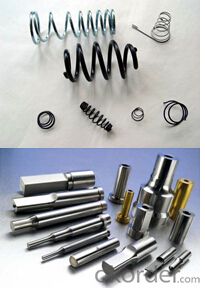
FAQ
1.What's your MOQ?
25MT, it is for one container.
2.Do you have QC teams?
Yeah, sure, our QC team is very important, they will keep the quality control for our products.
3. What's your normal delivery time?
Our delivery time about 10-20days for standard sizes, if you have other requirements like hardness and width ,it is about 20-40days. But don't worry ,we also try our best for the delivery time ,because time longer and our cost is higher.
4.Are the products tested before shipping?
Yes, all of our PPGI and GI was qualified before shipping. We test every batch every day.
- Q: What is the minimum thickness of a steel coil?
- The minimum thickness of a steel coil can vary depending on the specific grade and type of steel being used, as well as the manufacturing process. However, generally speaking, the minimum thickness of a steel coil is typically around 0.001 inches (0.0254 millimeters). It is important to note that this value is a general guideline and can vary based on the specific requirements and standards set by the industry or application.
- Q: Can you reload spent casings if they are steel?
- Technically they are reloadable but it's way too much effort and it'll probably cost more to do than its worth. I know you're probably asking this for surp. 7.62x54r right? The steel will have to be fully resized every time and you should only do it 1-2 time max to be safe. Also if your ammo is berdan primed the primers are very hard to find and these are a whole different beast than boxer primed. Short answer is yes but not worth it IMO.
- Q: What are the common methods of preserving steel coils?
- Some common methods of preserving steel coils include applying protective coatings, such as oil or paint, to prevent corrosion and rust formation. Another method is using VCI (Vapor Corrosion Inhibitor) paper or film, which releases chemicals that prevent oxidation. Additionally, steel coils can be stored in climate-controlled environments or wrapped in moisture-resistant materials to minimize exposure to moisture and humidity, which can accelerate corrosion.
- Q: What is the lifespan of coated steel coils?
- The lifespan of coated steel coils can vary depending on various factors such as the type and quality of the coating, the environmental conditions it is exposed to, and the maintenance and care provided. Generally, high-quality coated steel coils can have a lifespan of 25 to 50 years or even more. However, it is important to note that this is just an estimate and the actual lifespan may vary. Regular inspections, proper installation, and timely maintenance can significantly extend the lifespan of coated steel coils. Additionally, factors such as exposure to harsh weather conditions, corrosive environments, and improper handling can potentially shorten the lifespan. It is recommended to consult with manufacturers or industry experts to determine the most suitable coating and expected lifespan for specific applications.
- Q: How are steel coils inspected for paint adhesion using adhesion testers?
- Steel coils are inspected for paint adhesion using adhesion testers by applying a controlled amount of force to a specially prepared test area on the coil's surface. The adhesion tester measures the amount of force required to remove the paint coating from the surface, providing a quantitative assessment of the paint adhesion. This process helps ensure the quality and durability of the paint coating on the steel coils.
- Q: What are the common coil surface treatments?
- The common coil surface treatments include galvanization, electroplating, painting, and powder coating.
- Q: is cold roll or hot roll mill roller is cast steel? or cast iron?
- Casting is a process of forming a part just like forging or rolling are also processes of forming steel. Cast steel can be any grade of steel poured into a sand mold to form a part like a water pump housing in your car. To be classified as steel, the mixture usually contains less than 2% carbon. Cast iron is a mixture that generally contains more than 2% carbon. It also can be poured into a sand mold. There are many grades of iron. Many metals can be cast into shapes like the air intake plenum on your car is probably cast aluminum. Bronze statues are made by pouring molten bronze into a mold. The process used to create a part has an effect of that part's mechanical properties. A casting is weaker than a forging but certain parts cannot be formed by forging. The large diameter rolls used in steel mills to roll steel into thinner plates or sheets is a hot rolled steel that has probably been forged into shape then machined into the final diameter. Some rolls are fabricated from hot rolled steel plates into shape. This allows the ability to add internal cooling paths to keep the roll from overheating.
- Q: Can steel coils be customized?
- Yes, steel coils can be customized to meet specific requirements such as size, shape, thickness, and surface finish. Customization can be done through processes like cutting, slitting, shaping, and coating to ensure that the steel coils are tailored to the desired specifications.
- Q: How do steel coils contribute to energy performance in buildings?
- Steel coils contribute to energy performance in buildings primarily through their use in HVAC systems. Steel coils are commonly used in heating, ventilation, and air conditioning (HVAC) systems as heat exchangers or condenser coils. These coils help in transferring heat between the indoor and outdoor environments, allowing for effective heating or cooling of the building. The high thermal conductivity of steel enables efficient heat transfer, optimizing energy usage and enhancing the overall energy performance of the building. By facilitating appropriate temperature control and reducing energy consumption, steel coils play a vital role in improving the energy efficiency of buildings.
- Q: What are the factors affecting the formability of steel coils?
- The factors affecting the formability of steel coils include the composition and microstructure of the steel, the thickness and width of the coil, the temperature and speed of the forming process, the lubrication used during forming, and the presence of any surface defects or contaminants.
Send your message to us
Alloy Rolled Steel Coil for Machinery Parts
- Loading Port:
- Tianjin
- Payment Terms:
- TT OR LC
- Min Order Qty:
- 25 m.t.
- Supply Capability:
- 10000 m.t./month
OKorder Service Pledge
OKorder Financial Service
Similar products
Hot products
Hot Searches
Related keywords
